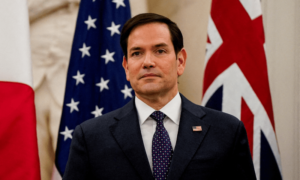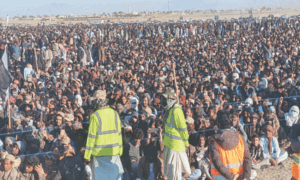ISLAMABAD:
The government on Wednesday proposed wholesale changes in the Prevention of Electronic Crimes Act (Peca), including widening of the scope of illegal contents on social media, a move seen by the journalists bodies as an attempt to throttle freedom of expression.
The government tabled the PECA Amendment Bill 2025 in the National Assembly. The bill will establish three new institutions Digital Rights Protection Authority (DRPA), National Cyber Crime Investigation Agency (NCCIA) and Social Media Protection Tribunal.
The bill was moved by Law Minister Azam Nazeer Tarar during the National Assembly session with Speaker Ayaz Sadiq in the chair. The speaker later referred the bill to the House Standing Committee on Interior for further deliberations.
In the bill, the definition of illegal content has been expanded to 16 types, including those against Islam, security or defence of Pakistan and public order, besides fake or false reports and allegations against constitutional institutions and their officers, including the judiciary and the armed forces.
The bill also outlaw indecency, immoral contents, contempt of court or incitement to commit any offence, blasphemous content, violence, incitement to communal hatred, obscene content, encouragement of crime or terrorism, copyright infringement, blackmailing and defamation.
According to the proposed amendments, action will be taken against the dissemination of the expunged content during the National Assembly, Senate, and provincial assembly sessions on the social media. In this case, a punishment of three-year jail term and a fine of Rs2 million has been proposed.
Under the bill, the DRPA would be established to “regulate” the social media content. It will have the authority to investigate complaints under Peca, remove online content, access prohibited or obscene content, and take action against those involved in sharing the prohibited content.
Also, the DRPA will have the authority to make recommendations to the federal and provincial governments on the related areas, including digital ethics. It will encourage and facilitate education, research and social media platforms, and ensure the online safety of the users.
The DRPA will facilitate social media platforms to have offices or representatives in Pakistan and “register” them, set rules and conditions for them. It can order the government and the social media companies to block or remove illegal online content.
The DRPA will comprise nine members, including interior secretary, information technology secretary, chairman of the Pakistan Telecommunication Authority (PTA) and the chairman of the Pakistan Electronic Media Regulatory Authority (Pemra).
Besides, five more members will be taken from the private sector – a senior journalist, a telecom expert, a lawyer, and an IT expert. All decisions in the authority will be made with the approval of the majority, however, the chairperson will have the exclusive power to block any illegal online content.
The bill also redefines the term “social media platform” by including tools and software used to access social media in its definition. It means that any person operating a system that allows access to social media’ has been included in this new definition of the social media.
The bill stipulates that the spreading false news will be punishable by three years in prison and a fine of Rs2 million. In this regard, the government will establish a social media protection tribunal. The tribunal will be bound to dispose of cases within 90 days. Its decisions can be challenged in the Supreme Court.
Furthermore, the NCCIA, which will be formed under the bill, which will investigate cases related to cybercrime. The federal government will appoint an officer equal to the rank of provincial inspector general of the police, as the director-general of the NCCIA for a period of three years.
After the establishment of the NCCIA, the Cyber Crime Cell of the Federal Investigation Agency (FIA) will be abolished and its offices and cases, assets and budget will be transferred to the NCCIA. The NCCIA will comprise eight members, including five appointed by the government.
Meanwhile, the Pakistan Federal Union of Journalists (PFUJ) slammed the bill, calling it a “deception” by the government. PFUJ President Afzal Butt and Secretary General Arshad Ansari termed the amendments “unnecessary” and against the spirit of the Constitution.
The PFUJ leaders warned that journalists across the country would launch protests if the amendments were not withdrawn. “The amendments are a deliberate conspiracy to suppress the media, social media, and the journalistic community,” they said in a statement.
The PFUJ leadership expressed disappointment that Information Minister Ataullah Tarar had promised to share the draft of the bill with stakeholders, including the PFUJ. They reiterated their commitment to protect the freedom of the press and the constitutional right to expression at all costs.
Also, the Karachi Union of Journalists (KUJ) strongly condemned the bill, warning that these amendments would limit the freedom of expression. KUJ President Aijaz Ahmed and General Secretary Lubna Jerar said that suppression of voices was an intolerable act in civilised societies.
The KUJ office-bearers said in a statement that the Article 19 of the Constitution provided the right to freedom of expression to every citizen. “The KUJ protests any attempt to suppress freedom of expression under any circumstances,” it said, demanding of the government to withdraw “this black law”.
- Desk Reporthttps://foresightmags.com/author/admin/











